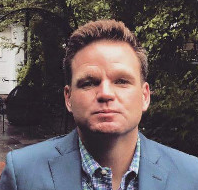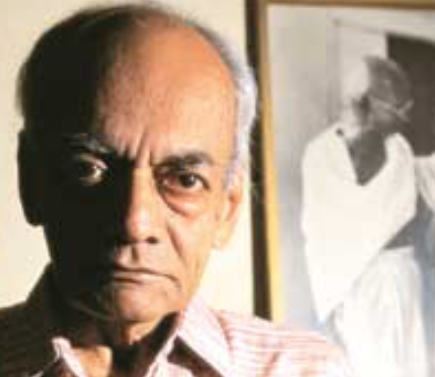“I Put the Words on Paper and He Took Them to Another Level”
August 12, 2021
Richard Trumka's longtime speechwriter Tim Schlittner compares writing speeches for the former AFL-CIO president to "caddying for Tiger Woods."
When I accepted the job as AFL-CIO Director of Speechwriting, my coworkers at the United Food and Commercial Workers International Union sent me off with a toast: “To the voice of America’s labor movement.” Of course, they were really referring to Rich Trumka, the longtime federation president, who we unexpectedly lost on August 5 at age 72. Those simple, encouraging words from my UFCW colleagues hit me like a ton of bricks. My task wasn’t to find Rich’s already well-established voice. It was to honor and amplify his greatness. As my successor in the role Patrick Kelly recently noted: “He was an outlier. He knew how to say it best—always.”
By the time I started writing for Rich, he had been giving speeches for nearly half a century. From his days running for president of the United Mine Workers of America as a young reform candidate in the early-80s, to his insurgent campaign to change the direction of the AFL-CIO with his friend John Sweeney in the mid-90s, to his unparalleled leadership during the COVID-19 pandemic, Rich always captivated an audience. His speaking style was genuine, informative, passionate and relentless. No clutter. No wasted words. “A speech is not a lecture,” he always told me. “It must educate AND motivate.”
Writing speeches for him felt like caddying for Tiger Woods. I put the words on paper and he took them to another dimension.
Rich insisted on including three crescendos in every major address. He wanted to bring the audience up and then settle them down with information. Then bring them up one more time followed by a little more education. And then he always wanted to finish with a bang. The drafts he was most unhappy with lacked strong endings. “This tapers off,” he would say. “We need to leave them inspired.” Rich loved statistics. Much more than I did. When he learned about a study which found that only 30 percent of millennials believe it’s essential to live in a democracy, he became obsessed with it. In that fact, he found a clear indictment of our economic and political systems. “These young people have grown up under the rules of globalization,” he often said. “They associate democracy with inequality.” Of course, he was right. Educate and motivate.
In Rich’s most well-known speeches during his tenure at the AFL-CIO (both before I got there), he tackled the issue of race head on. His 2008 address to the United Steelworkers convention quickly went viral. In it, he said: “There’s not a single good reason for any worker, especially any union member, to vote against Barack Obama. And there’s only one really, really bad reason…and that’s because he’s not white.” It sent shockwaves through the labor movement. Six years later, at the Missouri AFL-CIO Convention, when a unionized police officer killed Michael Brown, the son of union member, in Ferguson, Missouri, he said: “Our brother killed our sister’s son…” adding: “We as a movement have not always done our best to support our brothers and sisters of color who face challenges both on and off the job—challenges that you don’t really understand unless you live them. The test of our movement’s commitment to our legacy is not whether we post Dr. King’s picture in our union halls…it is…do we take up his fight when the going gets tough, when the fight gets real against the evils that still exist today.” Those who were in the room that day in St. Louis said the tension was palpable. Rich was always a courageous leader.
Perhaps the most challenging year writing for Rich came after the election of Donald Trump. He worked his heart out for Hillary Clinton. I watched him from just off the stage as he addressed the 2016 Democratic National Convention in Philadelphia. “Listen, he thinks he’s a tough guy,” he said. “Well, Mr. Trump, I worked in the mines with tough guys. I know tough guys, and they are friends of mine. And Donald, you’re no tough guy.”
When Trump was elected, with 37 percent of the AFL-CIO vote, he searched for a way to reach out to all of our members. What message were they sending? “For too long, the political elites have embraced economic policies that hold down wages, increase inequality, diminish opportunity and ship American jobs overseas,” Rich said, early in the morning of November 9, 2016, when it became clear Trump would be victorious. “Voters in both the primary and general election have delivered a clear message: enough.” In speeches early the next year, he kept the door open to working with Trump, especially on trade. “We’re gonna let them know what he does, how it affects their income—their wages—whether positively or negatively. We are truly going to call balls and strikes.”
I helped Rich come up with the “balls and strikes” refrain, and while it was widely despised by the resistance, including in some corners of our own organization, I believe it was crucial to passage of the most pro-worker trade deal in generations, the United States-Mexico-Canada Agreement, where Rich played three dimensional chess with the Trump administration, House Democrats and the president of Mexico to deliver on the long overdue promise of worker-centered trade.
With that upset victory in hand, Rich pivoted seamlessly to making the case for Joe Biden in 2020. “Brothers, sisters and friends: I’ve known Joe Biden for 40 years,” he said that Labor Day. “He’s real. He loves his family. He loves our country. He loves workers. This is not a campaign posture. It is his life.” Union members carried Biden to victory, and he has made workers a centerpiece of his administration. No one was a better negotiator than Rich.
I think my favorite speech that I worked on for Rich was a 2017 commencement address on the Penn State Fayette campus, where he had gone to school while working in the mines. The theme was compromise, and it really hits home today. “I encourage you to embrace fair compromise in every facet of your life,” he told the graduates. “Before you send that snarky e-mail, pick up the phone and talk it out. If you’ve reached an impasse with a friend or family member, do your part to make it right. Clean up your side of the street. If you are able to, let someone off the hook. Give rather than take. Serve rather than expect. See that your neighbors have the same hopes and dreams that you do; remember, there is more that unites us than divides us. In these challenging times, I encourage you to listen, not lash out. To dream, not fear. To live and love and laugh. Don’t take a single day for granted on this Earth. Remember, this is the only life we will ever get.”
Not a single day for granted. For 72 years, Rich Trumka lived a life of profound purpose and impact. I was honored to have a seat by his side for the past six. Writing for him was a dream come true. And I will never, ever forget it.






